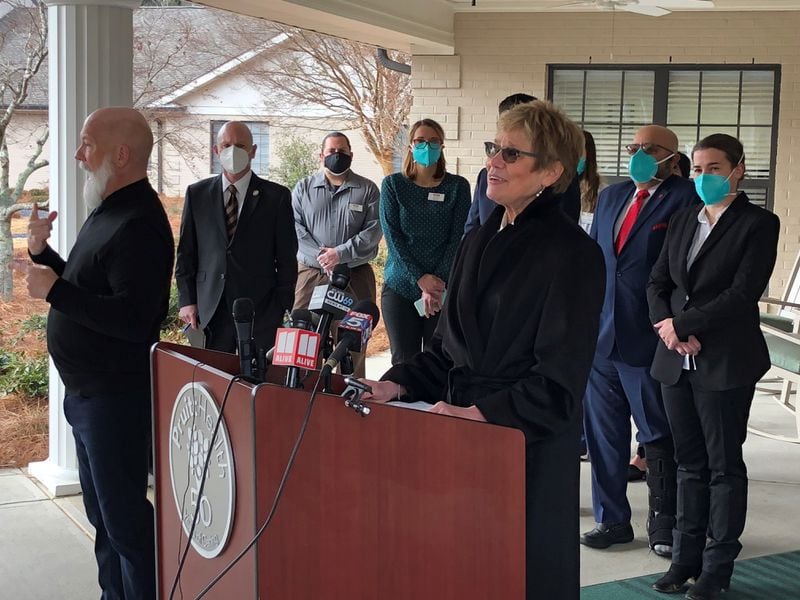Georgia is the fifth state where someone has been found to be infected with the variant virus of COVID-19. Here are answers to common questions about it.
Q: Why is the new strain of COVID-19 a concern?
A: The primary reason is that the variant appears to spread much more quickly from person to person. As a result, it has rapidly changed from being a rare strain to becoming a common one in the United Kingdom, where it was first detected. Since November, the strain has accounted for about 60% of recent infections in London, according to the Centers for Disease Control and Prevention. So far, however, CDC says there is no evidence that the variant causes a more severe disease or increased risk of death.
Q: Why did it emerge?
A: Viruses often mutate, or charge a bit, when they replicate. The more that viruses circulate, the more they can change. So the worldwide spread of COVID-19 is leading to mutations, the World Health Organization points out. This particular strain has undergone an unusually large number of mutations, CDC says.
Q: What is being done to detect it in the United States?
A: In November, after the strain was identified in the United Kingdom, the CDC launched a strain surveillance program, processing 750 samples a week sent by public health agencies. CDC is also contracting with large laboratories to sequence 1,750 samples per week and anticipates scaling up to 3,500 per week. CDC also has contracts with seven universities, including the University of Georgia, for surveillance in collaboration with public health agencies. To further expand surveillance, the CDC in mid-December released $15 million in funding for state and local health departments to check for the strain. The Georgia Department of Public Health said it is beginning variant testing the first week of January.
Credit: J. Scott Trubey
Credit: J. Scott Trubey
Q: How far has the variant spread here?
A: Since the first U.S. case was identified in late December by public health officials in Colorado, cases have been identified in California, Florida, New York and Georgia. Those infected have had no travel history to the U.K., which CDC says indicates that the virus is being transmitted person-to-person in the U.S. Given the small fraction of U.S. infections that have been sequenced, the variant could be in other places in the U.S. without having been detected, health authorities say.
Q: Will the vaccines now available be effective against the new strain?
A: Apparently. CDC officials said the strain isn’t likely to infect those with vaccine-induced immunity. Scientists are working, though, to learn more about whether currently authorized vaccines will protect people against the new strain.
Q: What are public health authorities doing to protect the public from the new strain?
A: Health authorities are learning how the variant might respond to drugs and other treatments. Meanwhile, they are urging the public to wear masks, avoid crowds, stay at least six feet from others, ventilate indoor spaces and wash hands frequently.
Q: What do we know about the other variant identified in South Africa?
A: Little information is available yet. That strain, first detected in South Africa in October, is also believed to be highly contagious, and South African health authorities said it may be behind a surge of infections in that country. CDC officials have said they don’t know if that variant is in the United States.
Compiled by Lois Norder







